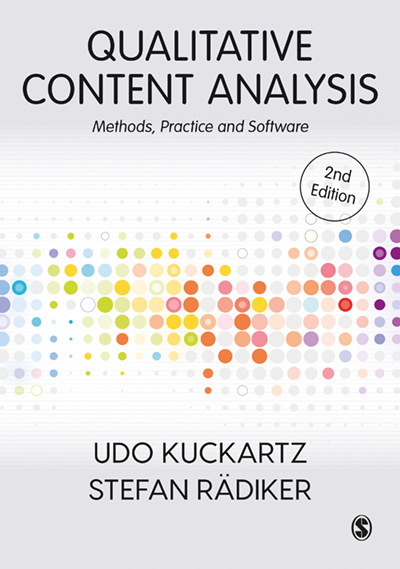Welcome
Are you working with qualitative data but unsure how to approach your analysis?
Our hands-on textbook to qualitative content analysis provides you with a clear strategy for analysing your data, whether you are working with social media content, field notes, images, narratives or focus group data. Using qualitative interviews as an example, the book provides a clear structure for approaching your analysis that can be adapted for your research project.
Explaining how qualitative content analysis differs from quantitative methods, the book provides you with:
- a solid understanding of the principles behind QCA
- a step-by-step guide to three types of QCA
- guidance on how you can use software to enhance your analysis.
We look forward to your feedback about your experiences with qualitative content analysis and about our book.
Udo Kuckartz & Stefan Rädiker
New! How to Integrate Artificial Intelligence in Qualitative Content Analysis
We have extensively examined the integration of Artificial Intelligence (AI) into Qualitative Content Analysis (QCA). Originally presented as a new chapter in the latest edition of our German textbook on QCA, this content is now available in English to reach a wider audience.
This text offers a detailed exploration of how AI—particularly large language models (LLMs)—can enhance the qualitative content analysis process. It covers these topics:
- The role of AI in qualitative content analysis
- Current academic discussions around LLMs
- AI as both a tool and partner in data analysis
- Practical applications in data exploration and category development
- Practical applications in coding and analysis of coded data
- Ethical considerations and privacy challenges
- The potential disruptive impact of generative AI on research practices
